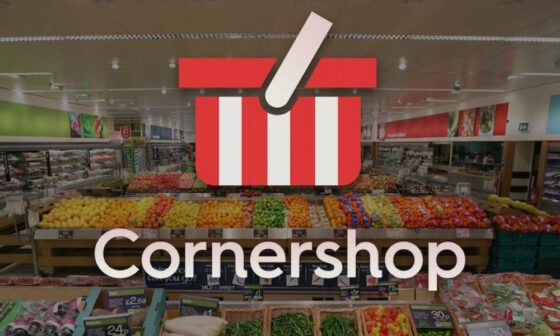To succeed in today’s changing ecosystem and remain competitive, entrepreneurs must be strategic and think globally when developing their startup. Having this approach from the very beginning can play an important role in their success. There are many gains to be had from establishing a presence overseas.
Internationalization has the potential to improve a startup’s economic performance. Companies can expand their network through new contacts and strategic alliances that can increase funding opportunities. Global business culture can stimulate innovation through more diverse teams, access to new technologies, and leveraging the advantages that are specific to each country, which can improve the quality of new products and services.
The United States is the main destination market for Chilean services companies seeking to go abroad. A leader in tech innovation, the US has over 31 million entrepreneurs and nearly 1,900 active venture capital funds. California and New York are the more known tech hubs, but Florida and Texas are quickly becoming centers for innovation in the health, big data, IoT, eCommerce, and fintech industries. According to the Kauffman Foundation (2017), Miami ranks first in startup activity.
Global business culture can stimulate innovation through more diverse teams, access to new technologies, and leveraging the advantages that are specific to each country, which can improve the quality of new products and services.
However, internationalization is not an easy task. There are many factors to be considered in an internationalization plan such as timing, size of the company, and product-market fit, among many other factors. Accelerator programs, government agencies, and global investors such as venture capital firms can facilitate this process.
Start-Up Chile is a leading seed accelerator in Latin America created by the Chilean government that provides equity-free investment for qualified startups. It has one of the largest and most diverse startup communities in the world and seeks to position Chile as a tech and innovation hub. Highly linked to international networks, almost 20% of its corporate network members are foreigners and 51.2% of its mentor network is based outside of Chile.
ProChile, the Chilean government’s export promotion bureau helps to position Chile as a reliable supplier of high-quality exportables goods and services. The institution organizes different initiatives and events, such as Chile Connected, to give visibility to what Chile has to offer across different sectors.
Together with CORFO, ProChile also organized GoGlobal, an initiative that has helped local startups like Lirmi and Lazarillo develop their internationalization strategy with the US as a destination market.
Here are 6 Chilean startups that have expanded into the US thanks to their groundbreaking and global solutions.
1. NotCo
NotCo is a foodtech startup that uses AI algorithms to recreate traditionally animal-based foods like milk, mayonnaise, ice-cream, and burgers using only plant components. Founded in 2015 by Matías Muchnick, Karim Pichara Baksai, and Pablo Zamora, NotCo has caught the attention of many key players in the ecosystem.
This foodtech participated in the prestigious biotech accelerator IndieBio and early on formed part of Kaszek Ventures’ portfolio. NotCo recently became Jeff Bezos’ first investment in a Latin American startup and has also received funding from The Craftory, Maya Capital, Future Positive, and L Catterton, among other leading investors.
NotCo’s products are available in Chile, Argentina, and Brazil. The company is scaling its operations and evaluating food service and retail partners for the US expansion, adding on to its previous NotBurger and NotMeat partnerships with Burger King and Papa John’s in Chile.
2. Cornershop
Cornershop is a Chilean startup that allows shoppers to purchase groceries online from different supermarkets and specialty stores and have them delivered straight to their homes. It was founded in 2015 by Daniel Undurraga, Juan Pablo Cuevas, and Oskar Hjertonsson.
After months of deliberation, Uber’s acquisition of the grocery delivery platform was approved. Cornershop can now be found in seven countries: Chile, Mexico, Brazil, Peru, Colombia, Canada, and the US, where it recently announced the official launch of operations in Dallas and Miami, marking its entrance into the market.
3. Junar
Junar is a cloud-based open data platform founded by Diego May and Javier Pájaro in 2010. The platform enables businesses, governments, and organizations to free their data to drive innovation, democratize data, and unlock economic value. The startup was a finalist at the MIT $100K and was the first StartUp Chile graduate. Junar has raised a total of $1.8M and has over 70 clients, who in large part are from the government.
The platform’s expansion strategy involved exploring more public ministries in Latin America and establishing its presence in the US market. Among other accomplishments, Junar was featured in Gartner’s 2016 Market Guide.
4. Lirmi
Lirmi is an edtech platform that helps teachers and schools be more efficient with their time, monitor students’ progress, and successfully implement their curriculum. The startup was founded by Marcelo Catrileo Rojas and Emerson Marin in 2013 and has received investment from US venture capital firm Devlabs Ventures. Lirmi was among the list of winners of GoGlobal’s first generation of startups.
The edtech operates in Chile, Peru, Colombia, Mexico, Brazil, and is preparing to launch into the US.
5. Brickop
Brickop is a real estate investing platform that enables the online collaboration of young professionals wanting to invest in apartments to improve their financial independence. The platform was born as a subsidiary of Capitalizarme and raised $1.4M from Aurus VC with the idea of replicating the model in Denver, US.
Brickop was founded in 2013 by Gabriel Cid who explained that they chose Denver because it is one of the top cities for young professionals and they set up an office in Boulder which has a strong startup ecosystem.
6. Lazarillo
Lazarillo is an app that seeks to give the blind and visually impaired autonomy while moving through their city and surroundings with real-time voice messages. The World Health Organization states that there are 285 million visually impaired people across the world, and innovative solutions like Lazarillo are helping them gain more independence.
The assistive technology app was founded in 2016 by René Espinoza, Jonathan Taivo, and Alvaro Bravo. Lazarillo also participated in Go Global 2019 and is a graduate of the 2019 Tampa Bay Wave tech incubator. It is currently available in 22 languages and recently launched in the US.
Chile’s tech startup ecosystem offers many soft landing opportunities for entrepreneurs to create a solid internationalization strategy for conquering new destination markets. By optimizing the tools and resources that are available to them, companies can successfully expand their business and increase their innovative capacity through the diversity and new funding opportunities that come from international expansion.


